Tree Service Edgmont
Best Tree Care in Edgmont
Receive multiple Tree Service quotes for your project today! Compare profiles, reviews, accreditations, portfolio, etc... and choose the best deal.

Allentown Tree Service LLC
4.414 reviews5499 Stonecroft Ln, Allentown, PA, 18106, USAllentown & Lehigh Valley's Best Tree Service. Looking for a top-notch tree care that you can rely on? We offer complete services at affordable prices in Allentown and Lehigh Valley, striving to reach beyond our client's highest expectations in both workmanship and customer service, we truly believe in setting the gold standard in tree care. At any time, our clients can call for the cheapest tree service free estimate. Our commitment to prompt, friendly service makes us a preferred choice in Lehigh Valley: Allentown, Easton, and Bethlehem.
- Services
- Why Us?
- Accreditations
- Our Team
- Testimonials
- Gallery
Get Quote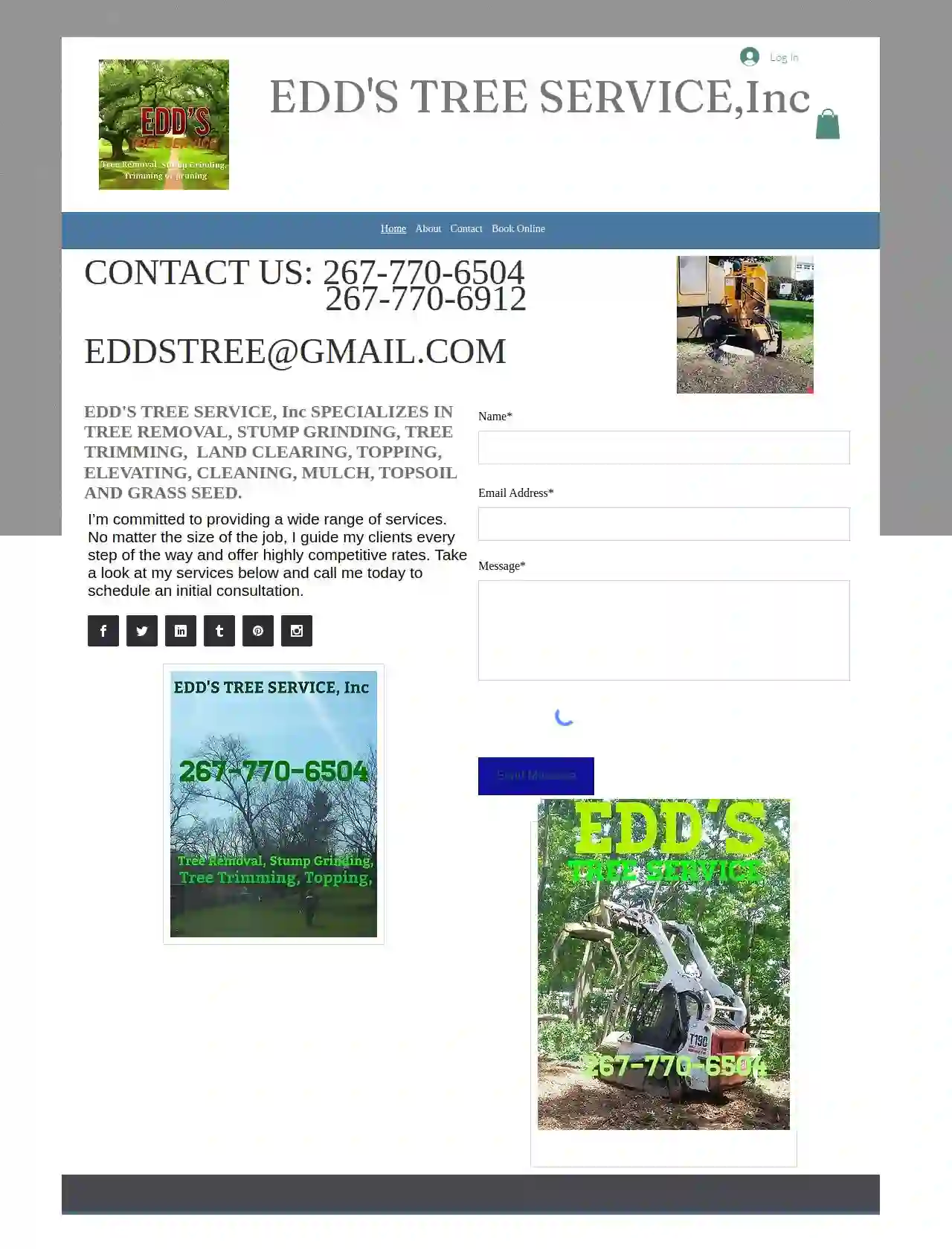
EDD'S TREE SERVICE
511 reviews123 Main St, Philadelphia, 19047, USEDD'S TREE SERVICE, Inc specializes in tree removal, stump grinding, tree trimming, land clearing, topping, elevating, cleaning, mulch, topsoil, and grass seed. Committed to providing a wide range of services, guiding clients every step of the way, and offering highly competitive rates.
- Services
- Why Us?
- Accreditations
- Our Team
- Testimonials
- Gallery
Get Quote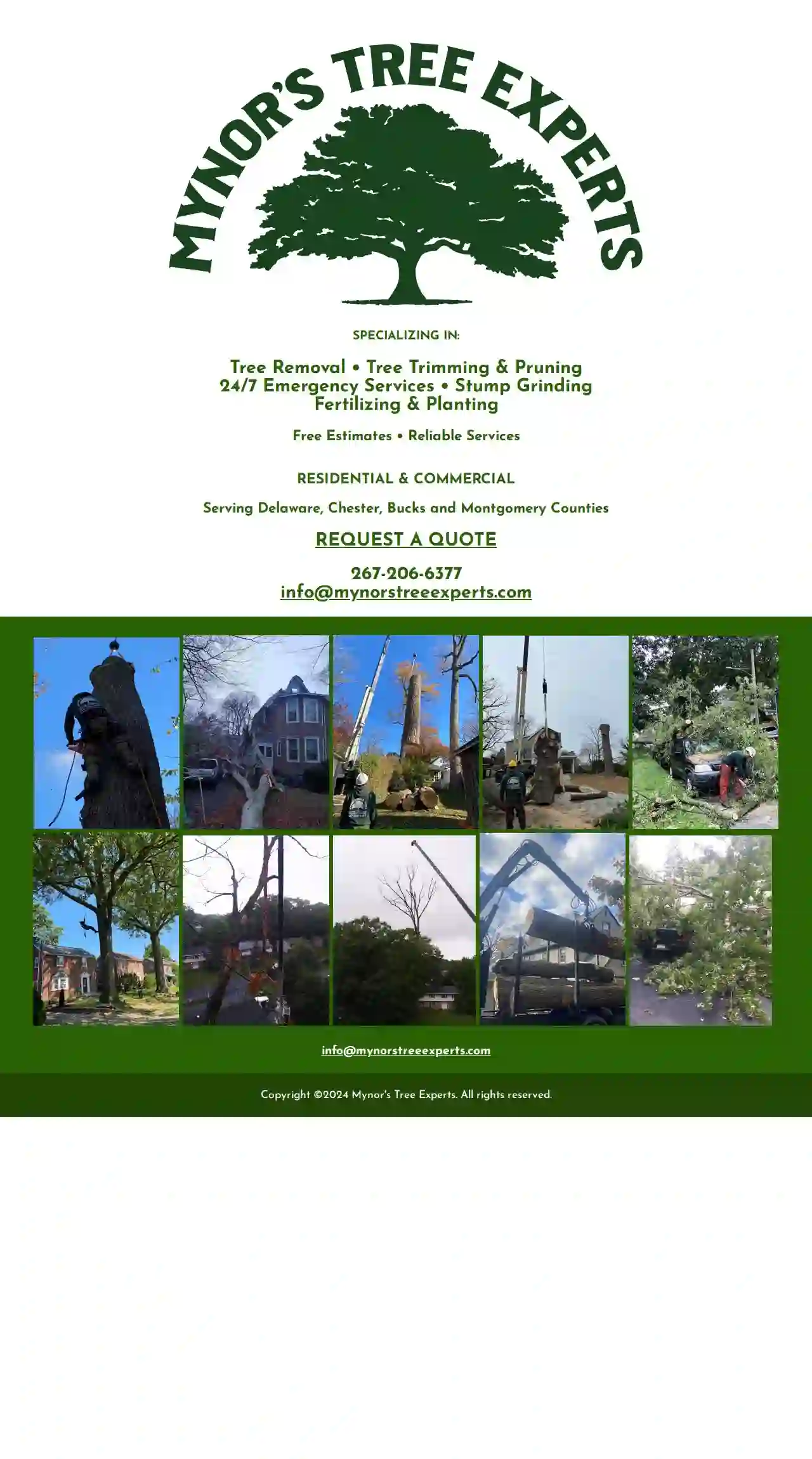
Mynor’s Tree Experts
4.986 reviews123 Main St, Suite 100, Philadelphia, 19000, USMynor's Tree Experts specialize in tree removal, tree trimming & pruning, 24/7 emergency services, stump grinding, fertilizing & planting. They offer free estimates, reliable services, and cater to both residential and commercial clients. They serve Delaware, Chester, Bucks, and Montgomery Counties.
- Services
- Why Us?
- Gallery
Get Quote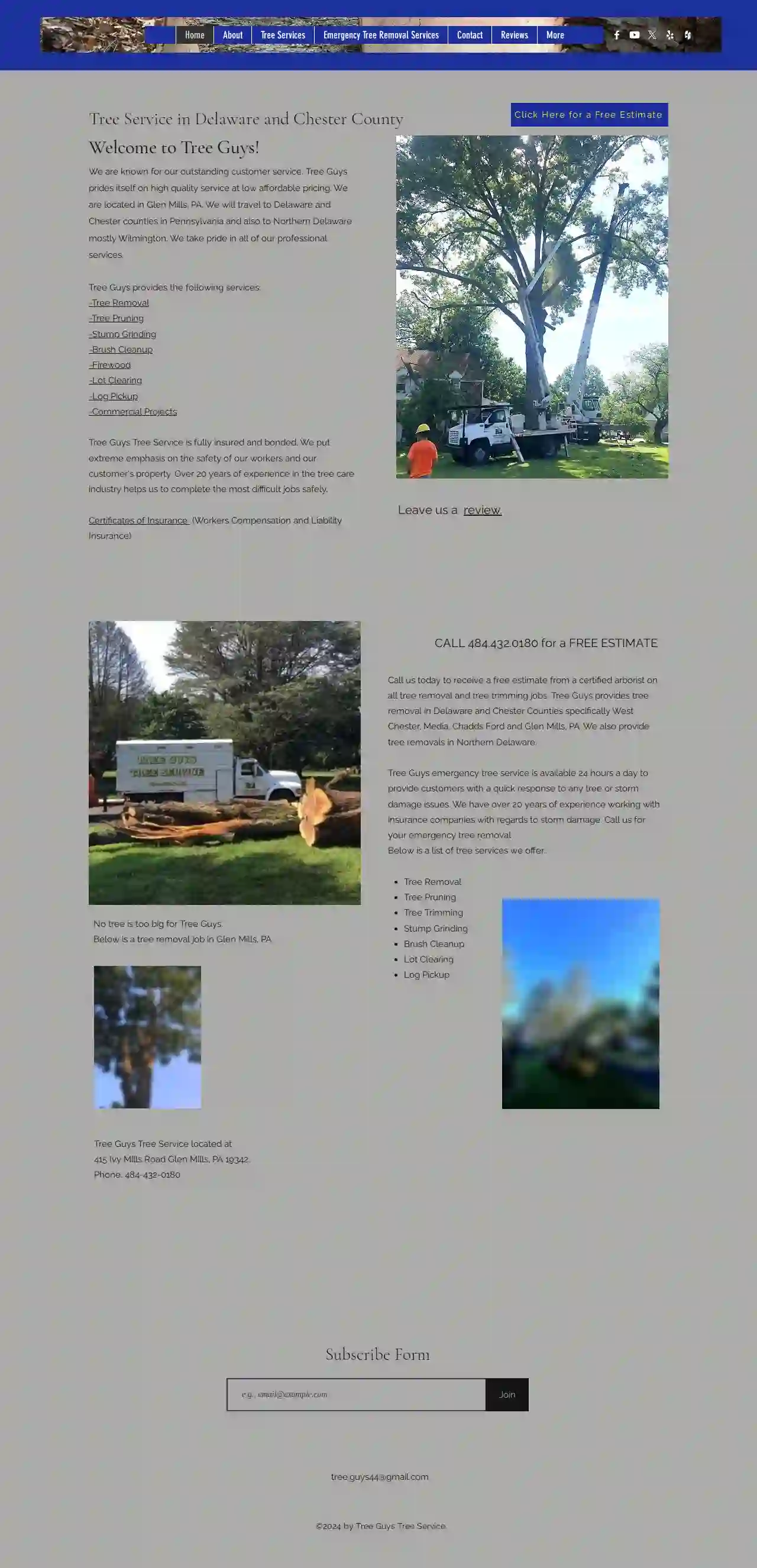
Tree Guys Tree Service
4.9129 reviews415 Ivy Mills Road, Glen Mills, 19342, USTree Guys is a tree service company located in Glen Mills, PA, providing high-quality services at affordable prices. They offer a range of services including tree removal, tree pruning, stump grinding, brush cleanup, firewood, lot clearing, log pickup, and commercial projects. With over 20 years of experience in the tree care industry, they prioritize safety and are fully insured and bonded.
- Services
- Why Us?
- Gallery
Get Quote
Weldon's Tree Service
4.730 reviewsPhiladelphia, USA name and a family you can trust since 1988! Weldon's Tree Service offers residential and commercial services including tree removal, emergency service, tree trimming, and stump removal. Fully licensed and insured, we provide quality service at affordable prices. Call today for your free estimate!
- Services
- Why Us?
- Gallery
Get Quote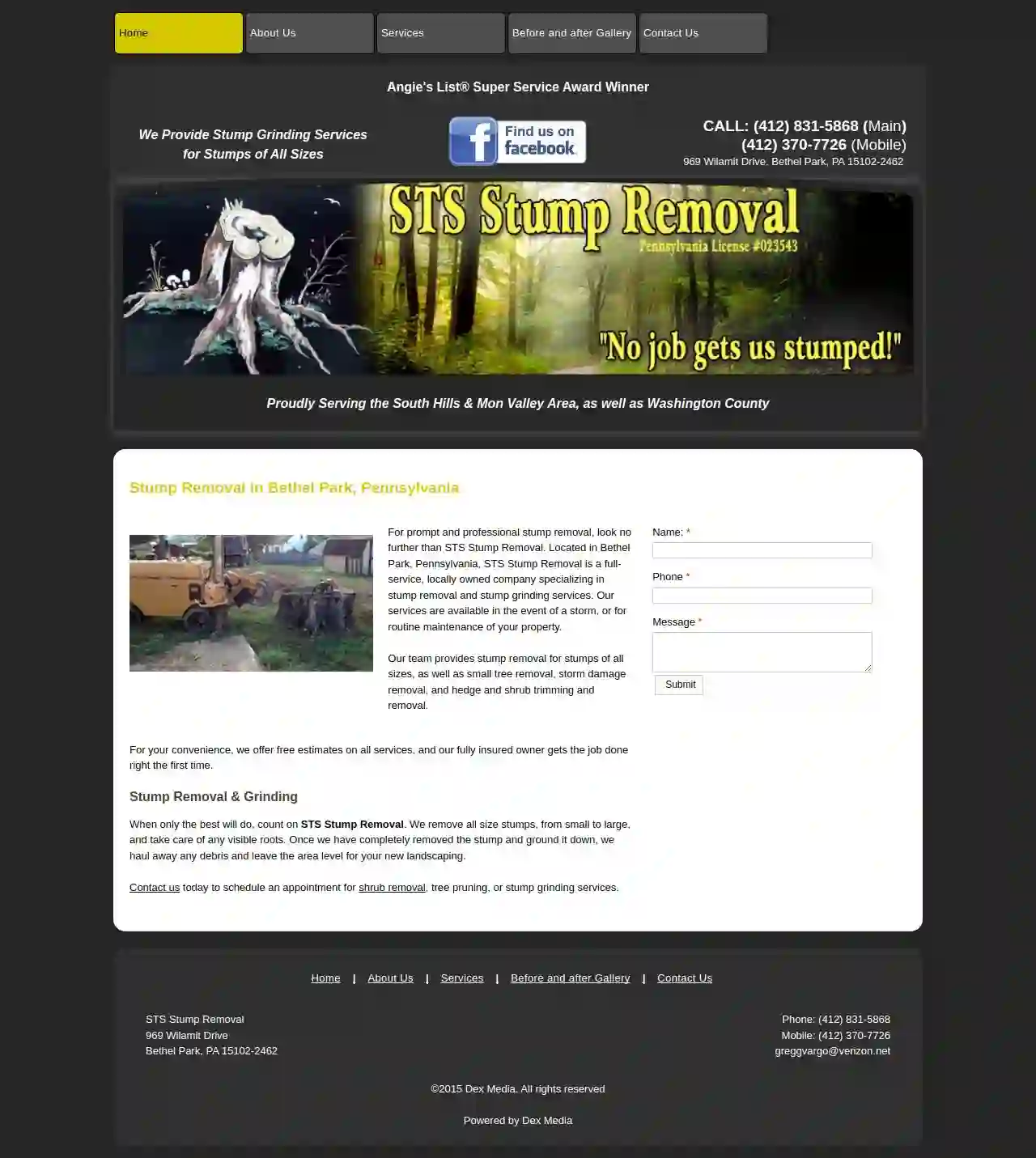
STS Stump Remvoal
4.47 reviews969 Wilamit Drive, Bethel Park, 15102-2462, USBacked by 30+ years of experience, our family owned and operated company specializes in stump removal and stump grinding services. Our second generation owner completes all of the work, and offers a 100% satisfaction guarantee on all stump removal services.
- Services
- Why Us?
- Accreditations
- Gallery
Get Quote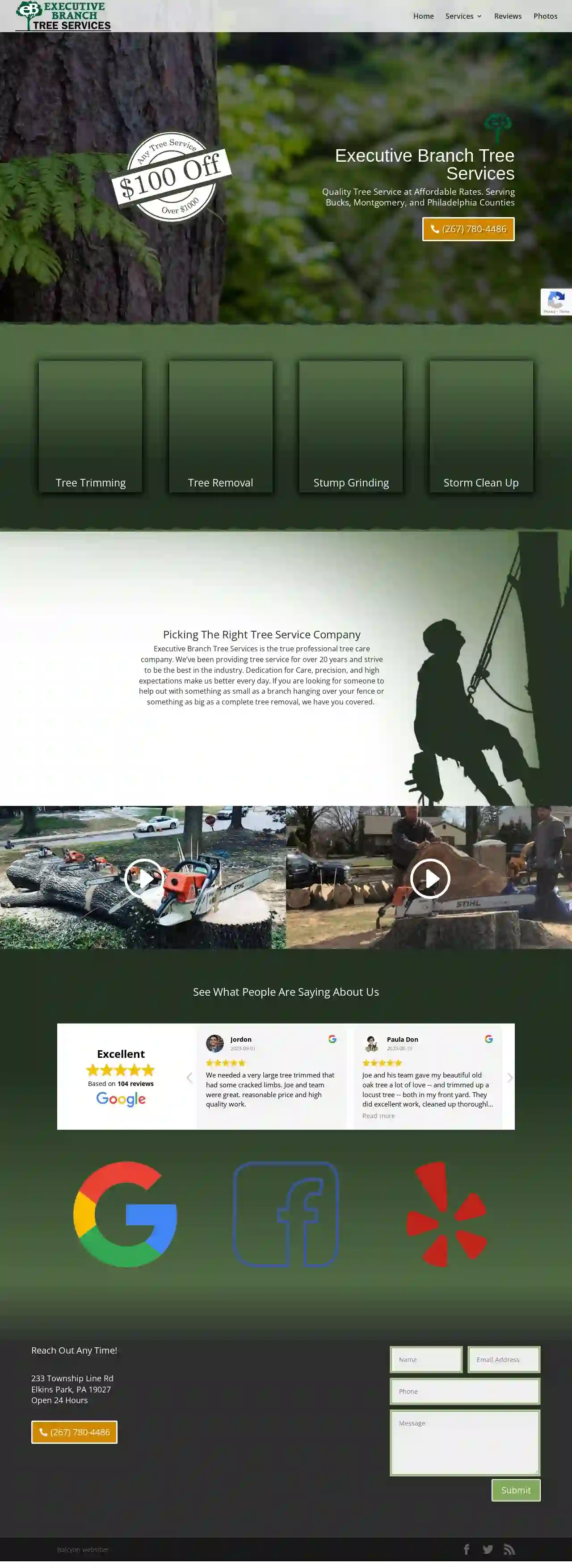
Executive Branch Tree Services
4.9116 reviews233 Township Line Rd, Elkins Park, PA 19027, 19027, USExecutive Branch Tree Services is the true professional tree care company. We’ve been providing tree service for over 20 years and strive to be the best in the industry. Dedication for Care, precision, and high expectations make us better every day. If you are looking for someone to help out with something as small as a branch hanging over your fence or something as big as a complete tree removal, we have you covered.
- Services
- Why Us?
- Accreditations
- Our Team
- Testimonials
- Gallery
Get Quote
Baylor's Top Notch Tree Service, LLC
5261 reviews1234 Main St, Suite 101, Allentown, 18017, USBaylor's Top Notch Tree Service is a family owned business in Lehigh Valley, Pennsylvania. We are a fully licensed and insured tree service for residential and commercial tree care. We specialize in hazardous tree removal and goal based tree pruning. We complete extensive projects for municipalities, universities, property managers, country clubs and apartment complexes in Allentown, Bethlehem and Easton. Put our skills and knowledge to work for you. Our commitment to quality and client satisfaction at Baylor’s Top Notch Tree Service means you can be confident you are hiring the right company for the project as well as establishing a relationship with a Lehigh Valley tree service you can trust. We pride ourselves on exceeding expectations.
- Services
- Why Us?
- Accreditations
- Our Team
- Testimonials
- Gallery
Get Quote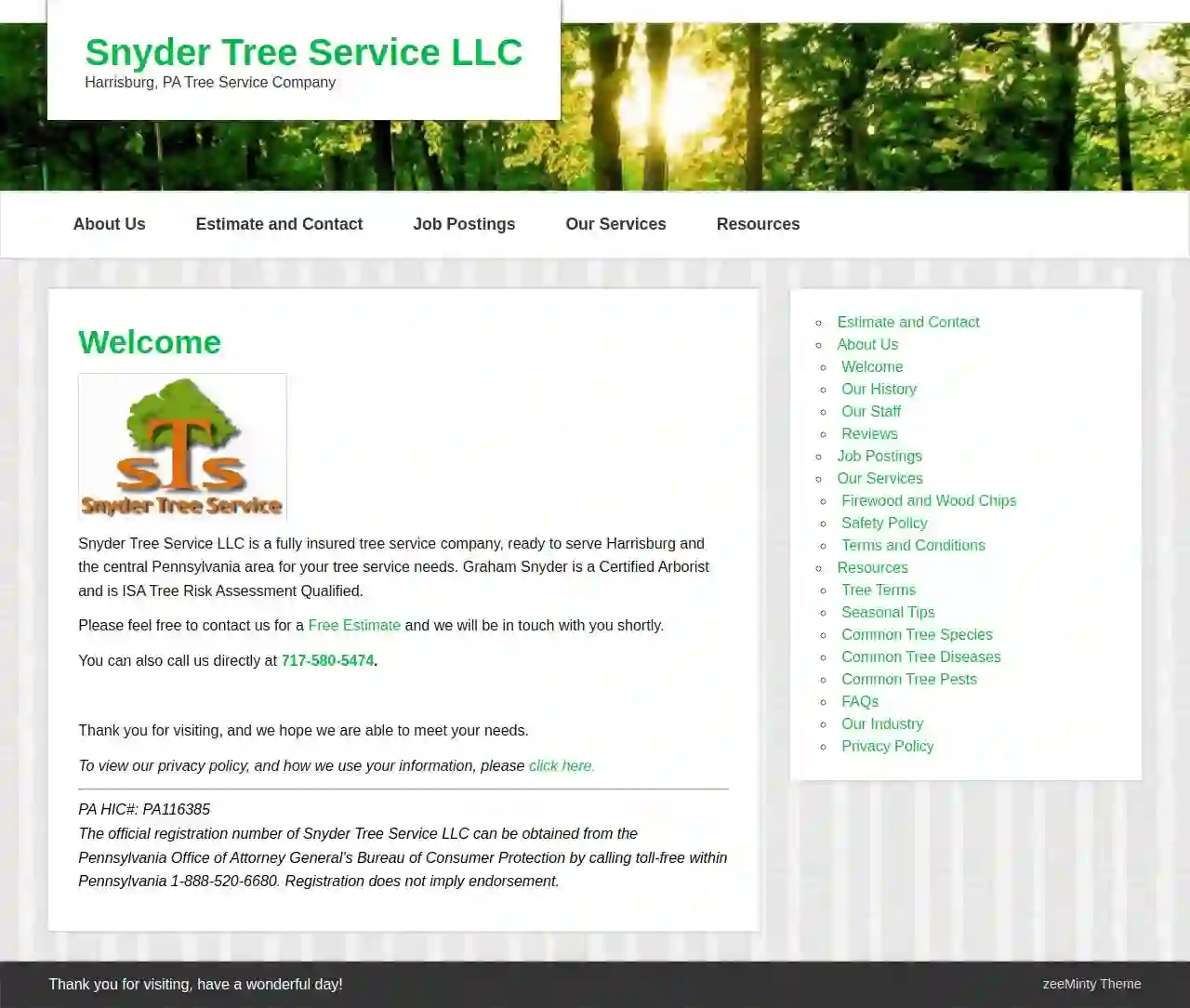
Snyder Tree Service LLC
511 reviewsHarrisburg, PA, 17101, USSnyder Tree Service LLC is a fully insured tree service company, ready to serve Harrisburg and the central Pennsylvania area for your tree service needs. Graham Snyder is a Certified Arborist and is ISA Tree Risk Assessment Qualified.
- Services
- Why Us?
- Accreditations
- Our Team
- Gallery
Get Quote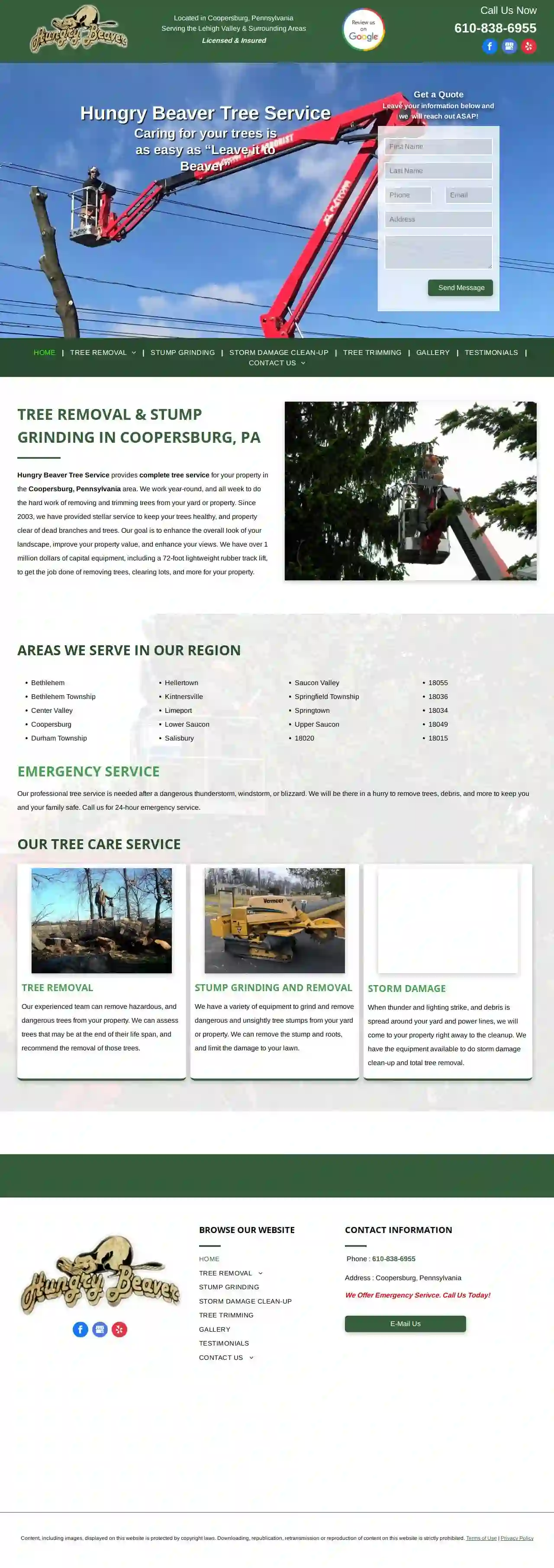
Hungry Beaver Tree Service
4.512 reviewsCoopersburg, PA, Pennsylvania, 18036, USHungry Beaver Tree Service provides complete tree service for your property in the Coopersburg, Pennsylvania area. We work year-round, and all week to do the hard work of removing and trimming trees from your yard or property. Since 2003, we have provided stellar service to keep your trees healthy, and property clear of dead branches and trees. Our goal is to enhance the overall look of your landscape, improve your property value, and enhance your views. We have over 1 million dollars of capital equipment, including a 72-foot lightweight rubber track lift, to get the job done of removing trees, clearing lots, and more for your property.
- Services
- Why Us?
- Accreditations
- Our Team
- Testimonials
- Gallery
Get Quote
Over 16,467+ Tree Surgeons onboarded
Our tree removal contractors operate in Edgmont & beyond!
TreeServiceMatch has curated and vetted Top Tree Service Contractors arround Edgmont. Find a reliable business today.
Frequently Asked Questions About Tree Services
- Experience and qualifications: 'How long have you been in business? Are your arborists certified? What experience do you have with similar projects?'
- Licensing and insurance: 'Are you licensed and insured? Can you provide proof of insurance?'
- Safety practices: 'What safety measures do you take to protect your workers and my property during the project?'
- Cleanup and disposal: 'What will you do with the tree debris after the job? Will you remove the stump and clean up the work area?'
- References: 'Can you provide references from previous clients?'
- Written estimates: 'Can you provide a detailed written estimate outlining the scope of work, costs, and timeframe?'
- Tree Protection Zone (TPZ): Establish a designated area around the trees that is off-limits to construction activities. The size of the TPZ depends on the tree's size and species, but generally, it should extend to the drip line (the outermost edge of the tree's canopy).
- Root Protection: Avoid digging, trenching, or compacting the soil within the TPZ. If excavation is necessary, use hand digging or air spading to minimize root disturbance.
- Trunk Protection: Protect tree trunks from damage by wrapping them with protective barriers, such as burlap or plywood.
- Branch Protection: Avoid cutting or damaging branches unless absolutely necessary. If pruning is required, have it done by a certified arborist.
- Watering: Ensure trees receive adequate water during construction, especially if the soil has been disturbed or compacted.
- Monitoring: Regularly monitor trees for signs of stress or damage during and after construction.
Do tree roots grow towards water?
Roots have specialized cells called 'root hairs' that absorb water and nutrients from the soil. These root hairs are more abundant in moist soil, so roots naturally extend more in those areas. However, roots also need oxygen to survive, so they will not grow into waterlogged soil. The direction of root growth is influenced by a combination of factors, including moisture, oxygen availability, soil nutrients, and the tree's overall health.
Do I need a permit to remove a tree in USA?
It's essential to check with your local council or municipality for specific tree removal regulations. Reputable tree service companies are typically familiar with local regulations and can help you determine if a permit is needed.
What questions should I ask a tree service company?
What is the best way to protect trees during construction?
Do tree roots grow towards water?
Roots have specialized cells called 'root hairs' that absorb water and nutrients from the soil. These root hairs are more abundant in moist soil, so roots naturally extend more in those areas. However, roots also need oxygen to survive, so they will not grow into waterlogged soil. The direction of root growth is influenced by a combination of factors, including moisture, oxygen availability, soil nutrients, and the tree's overall health.
Do I need a permit to remove a tree in USA?
It's essential to check with your local council or municipality for specific tree removal regulations. Reputable tree service companies are typically familiar with local regulations and can help you determine if a permit is needed.
What questions should I ask a tree service company?
- Experience and qualifications: 'How long have you been in business? Are your arborists certified? What experience do you have with similar projects?'
- Licensing and insurance: 'Are you licensed and insured? Can you provide proof of insurance?'
- Safety practices: 'What safety measures do you take to protect your workers and my property during the project?'
- Cleanup and disposal: 'What will you do with the tree debris after the job? Will you remove the stump and clean up the work area?'
- References: 'Can you provide references from previous clients?'
- Written estimates: 'Can you provide a detailed written estimate outlining the scope of work, costs, and timeframe?'
What is the best way to protect trees during construction?
- Tree Protection Zone (TPZ): Establish a designated area around the trees that is off-limits to construction activities. The size of the TPZ depends on the tree's size and species, but generally, it should extend to the drip line (the outermost edge of the tree's canopy).
- Root Protection: Avoid digging, trenching, or compacting the soil within the TPZ. If excavation is necessary, use hand digging or air spading to minimize root disturbance.
- Trunk Protection: Protect tree trunks from damage by wrapping them with protective barriers, such as burlap or plywood.
- Branch Protection: Avoid cutting or damaging branches unless absolutely necessary. If pruning is required, have it done by a certified arborist.
- Watering: Ensure trees receive adequate water during construction, especially if the soil has been disturbed or compacted.
- Monitoring: Regularly monitor trees for signs of stress or damage during and after construction.